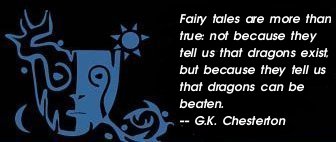
War, Peace, and the American Imagination:
A Special Event with Deepak Chopra and James Hillman
Moderated by Jean Houston
September 20, 2005
Violent conflict is all around us. The London transit bombings are the most recent
horrible example, but sadly, they are merely one set of cries in a cacophony of screams
rising around the world. Baghdad, Darfur, Jerusalem, Kashmir, Columbia; the list goes on.
According to the 2004 Swords and Ploughshares Report, there were 36 ongoing violent
conflicts in 28 countries in 2003. What is even worse is that at a dramatically increasing
pace, the casualties in these conflicts are civilians, so called "collateral damage." According
to UNICEF, violent conflicts have directly killed up to 3.6 million people since 1990, with
over 45 percent of them being children.
To stop hating and to love, to stop wanting and to give, to stop fighting and to be at
peace; this is the utopia dreamt about by humankind throughout history. Can we be without
war? Violent conflict between people has been a part of human nature until now. Can we
escape this paradigm? Or is it true that, despite the political and economic factors used by
historians to explain wars in hindsight, this sanguine phenomenon is a cyclic ferment over
which no earthly power has control? Is it an instrument both of destruction and evolution?
These are some of the most crucial questions confronting humanity today. While we
face seemingly endless war, we have the scientific knowledge and the technological capacity
to be aware of the interconnectedness of all life. We could bring about a golden age providing
a higher quality of life for everyone.
War cries saturate the air; peace yearnings stir the hearts.
In his most recent book, Peace is the Way, Deepak Chopra writes, "We must not bring
one war to an end, or thirty, but the idea of war itself." Based upon Mahatma Gandhi's famous
quote, "There is no way to peace. Peace is the way," Chopra posits that, in order to end war,
people must transform their fundamental understanding of war and conflict resolution, and
change their allegiance from violence to peace. He believes it is possible for individuals to
transform their consciousness to such an extent that humankind can bring an end to war.
Renowned psychologist James Hillman, on the other hand, recently published A Terrible
Love of War, where he states, "The whole bloody business reveals a god, therewith placing
war among the authentic phenomena of religion. And that is why it is so terrible, so loved, and
so hard to understand." He believes that we are ceaselessly driven to war by psychological
realities that reveal themselves in a multitude of ways. Perhaps we can tame this drive, but
can it ever be transformed?
"The failure to understand may be because our imaginations are impaired and our modes
of comprehension need a paradigm shift. If the ponderous object of war does not yield to our
tool, then we have to put down that tool and search for another."
— James Hillman, A Terrible Love of War
Both men firmly agree that war is, in the end, a failure of imagination. Hillman writes, "If we
want war's horror to be abated so that life may go on, it is necessary to understand and imagine."
For the first time ever, these great minds will discuss and debate the causes of war,
examine the possibilities of peace, and explore the role of the imagination in the process
during an evening's conversation moderated by the brilliant Jean Houston.
"The way of peace is based upon the same thing that ushered in the age of science: a
leap in consciousness."
— Deepak Chopra, Peace is the Way
Please join us at Glenn Memorial Auditorium on September 20 at 8 PM for this special
event hosted by Emory University. Tickets will go on sale soon through the Emory University
box office. We will send out a special update when tickets are available. We will also be
hosting a very small fundraising reception prior to the event. Please contact Brenda Sutton
at brenda@mythicjourneys.org
, if you would like to attend the reception.
War, Peace and the American Imagination is a joint production of the Mythic
Imagination Institute and the Alliance for a New Humanity. Parts of this letter were co-written
with Arsenio Rodriguez, the Secretary General of the Alliance for a New Humanity.
I hope to see you there,
Michael Karlin
Mythic Imagination Institute
Return to Passages Menu
|

